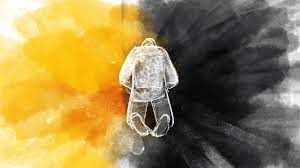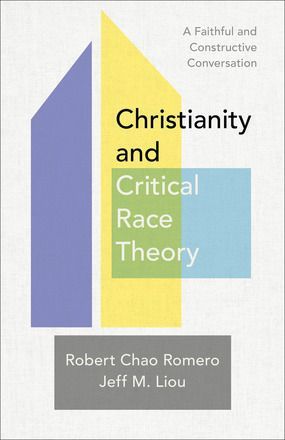Can God See Sin?
Josh Cramer • February 18, 2023
Some reflections on Habakkuk 1:13

Growing up in the Christian world, I heard and internalized the idea that God cannot tolerate sin. That idea is a basis for a lot of purity culture stuff and sin management ("don't cross the lines because then you'll put yourself into the realm of God's wrath"), for a lot of culture war stuff ("we have to fight against things in culture that might tarnish us with sin"), and for a lot of shame that many of us experienced and continue to deal with ("welp, crossed that line, now I'm no good"). I certainly lived with that concept floating around in my head: don't associate with those people, or listen to that music, or watch those movies, or do those actions because I might end up being tainted by sin. And when I did cross those lines (which I most certainly did), I understood myself to be beyond God's tolerance. The goal of the Christian life was to remain holy, and holiness means remaining pure and set apart from sin. Just like God.
In our last post, we looked at Romans 15 and how Jesus seems to enter into the full human experience, which would put him in a weird relationship with a God who cannot see or tolerate sin. So I wondered: is this a true way of talking about God? Does God really not see sin?
As I looked into arguments
for that position, I saw repeated references to one passage: Habakkuk 1:13. This seems to be the hinge passage for this idea in all of Scripture--there are other places that can be interpreted to mean something similar, but Habakkuk 1 is the one place that it's clear. So let's take a look.
Habakkuk was a prophet around 600 BC, near the end of the southern Kingdom of Judah. He saw a lot of evil in Judah, throughout the culture including the civil and religious authorities. He saw the end of Judah coming and he warned the nation that judgment was on its way. Chapter 1 starts with Habakkuk complaining to God that God seems to put up with a lot of sin in the nation. Why won't God deal with sin? Why does He continue to tolerate it? In verse 3, the prophet cries out, "Why do you make me look at injustice? Why do you tolerate wrongdoing?" God answers, in verses 5-11. His answer, to Habakkuk's dismay, is that God is going to judge the evil in Judah by bringing the even more evil and ruthless Babylonians to lay waste to the nation of Judah. Habakkuk responds with disbelief: the Lord is holy and eternal; how can He use the wicked to punish those who are slightly less wicked (1:12-2:1)? Chapter 2 is God's second response to Habakkuk, where he sets Habakkuk straight: God is still in charge, He has had His eyes on the state of the world and the ways that the wicked have done evil and violence and followed after idols, and He will judge evil and eliminate it in His timing.
In the context of Habakkuk's reply to God's idea of bringing the Babylonians against Judah, Habakkuk names his idea of God's character: "Your eyes are too pure to look on evil; you cannot tolerate wrongdoing" (1:13). Habakkuk is naming a reality that He believes to be true but that his experience is telling him feels false. Habakkuk knows that God is righteous and holy and will judge evil, but his experience of Judah--and then God's answer that He will judge Judah's evil with the even more evil Babylonians--tells him that God seems to look on a lot of evil and tolerate quite a lot of wrongdoing. Habakkuk ends his complaint in 2:1 in the place where God ends his response in 2:20 (and where Job ends his similar complaints): in silence and waiting. YHWH is not bound by our timing or our methods; He will use even evil people to fulfill His purposes.
Evil does not deter God from His purposes! I want to argue from the rest of Scripture that God does not participate in or cause evil, but God can redeem even sinful, evil events, ideas, and people to bring His good purposes about. The cross, of course, is the greatest and clearest example of this, where the evil of the world was concentrated on the Son of God and killed him, only for God to bring about total transformation of death and crucifixion so that evil is ultimately defeated. The cross is the great example, but this is a common thread throughout all of Scripture: God redeems human evil to bring about good things. God looks on a lot of sin and tolerates all kinds of wrongdoing, but ultimately undoes the evil and judges the wrongdoing in His love.
To summarize: Habakkuk writes this verse--"Your eyes are too pure to look on evil; you cannot tolerate wrongdoing"--because He sees God tolerating and watching so much
evil and wrongdoing. God allows evil, but not forever. And God's final answer to evil is neither to tolerate it forever and let it win nor to simply obliterate evil or all that evil has touched, but to enter into the full human experience, including evil and its most devastating effect, death, so that He can defeat it once and for all. Jesus loves humanity so much that he takes on sin and death to overcome it. Rather than being tainted by sin, Jesus redeems what he touches. As Flannery O'Connor says (and my friend Dave reminded me): "the best way to avoid Jesus was to avoid sin" (from her novel Wise Blood).
Habakkuk is right about God's character: God works in ways that bring about the destruction of evil and sin. But we wrongly apply that truth about God's character when create a holiness codes or sin management strategies, especially when they lead to shame that keeps us from the One who can take us as we are and make us holy.

This is how I remember Lent as a kid: go to mass on Ash Wednesday (I have no memory of any sermon, lol), vow to give up something (that lasted as long as a New Year’s resolution), and eat Long John Silver’s fried fish on Fridays (their hushpuppies and crunchies…mmmm). We didn’t eat meat on Fridays (unless we forgot, but we prayed, so it was ok); it was something everyone in the church did, right? I knew it was leading up to Easter--other than that, I had no real understanding or connection to it. Lent was taught more like an obligation rather than an opportunity. An opportunity to reflect, rejoice, rest, repent (what other “r” words can we think of?) on Christ’s journey to the cross. The next 40 days is an opportunity, an invitation to draw closer to the Giver of Life. For some, this might look sacrificial (giving something up), for others it might be a genesis (starting something new), or it can be a combination of the two. “Your kingdom come, Your will be done, On earth, As it is in heaven” Our Lord doesn’t just teach us to pray, he embodies prayer. He inaugurates God’s kingdom on earth through his presence with us; through his faithful obedience, we get to see and experience heaven on earth. This does not come without temptation, and trials, and wandering astray at times—yet our loving God invites. He invites us to remember, to reengage with the One who creates and holds all things; He invites us to lay down our lives and pick up our crosses. We want to invite you to participate with RCB, as we journey with Christ to Calvary, praying for the strength to be obedient… Your kingdom come, Your will be done, On earth, As it is in heaven.









